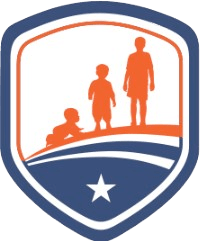How We Use Technology to Enhance Christian Education at The Greater Tomorrow Christian Academy

At The Greater Tomorrow Christian Academy, we understand that technology is an integral part of the modern world. As we prepare our students for both their academic journeys and their futures, we recognize the value of integrating technology into their learning experiences. However, we also believe that technology should serve as a tool to enhance, rather than replace, the core values of Christian education. That’s why we are committed to using technology in ways that support our mission to nurture both the academic and spiritual growth of our students.
In this article, we explore how we effectively incorporate technology into our curriculum and daily operations to create a learning environment that is both innovative and rooted in Christian values.
1. Integrating Faith and Technology in the Classroom
At The Greater Tomorrow Christian Academy, technology is not just a tool for enhancing lessons—it is also an avenue through which we integrate faith into the curriculum. We believe that technology can help our students engage with Scripture, learn about Christian history, and explore faith-based topics in ways that are relevant and interactive.
Faith-Based Learning Tools:
- Digital Bible Studies: We use digital resources to enhance Bible study lessons, allowing students to access interactive versions of the Bible, study materials, and multimedia content that complement traditional teachings. These resources help students engage more deeply with the Word and encourage them to develop a habit of daily Scripture reading.
- Christian Educational Apps and Websites: To further integrate faith into the classroom, we incorporate educational apps and websites that offer Christian-themed content. For instance, students can explore digital devotionals, Christian history timelines, or interactive prayer journals that enrich their understanding of faith and encourage spiritual growth.
- Virtual Christian Community: Technology allows our students to connect with other Christian students around the world through virtual communities, discussion groups, and online prayer sessions. This global network offers students the opportunity to learn from peers with diverse perspectives while deepening their faith.
2. Encouraging Digital Literacy Through Christian Principles
As part of our commitment to preparing students for the future, we place a strong emphasis on digital literacy. However, we do not simply teach students how to use technology; we also teach them how to use it responsibly and ethically in alignment with Christian principles.
Building Ethical Digital Citizens:
- Promoting Respect and Integrity: Through our digital citizenship curriculum, we emphasize the importance of respecting others online, practicing kindness, and using technology in ways that honor God. Students are taught the ethical implications of their digital footprints, including issues related to online behavior, privacy, and security.
- Encouraging Accountability: We encourage students to take responsibility for their digital actions, fostering an environment where they understand the consequences of their online behavior. As Christian students, they are challenged to apply biblical teachings to their interactions on social media, in gaming communities, and in their online communications.
- Avoiding Harmful Content: One of the most important aspects of our digital literacy curriculum is helping students recognize the potential dangers of the internet. From inappropriate content to negative influences, we teach students to discern what is in line with Christian values and avoid material that could damage their spiritual well-being.
3. Leveraging Technology for Personalized Learning
Technology allows us to personalize learning experiences for each student, ensuring that they receive the support and resources they need to succeed academically. This personalized approach is especially important at The Greater Tomorrow Christian Academy, where we aim to cater to the individual needs of each student while fostering their spiritual and intellectual growth.
Customized Learning Paths:
- Adaptive Learning Software: We use adaptive learning tools that adjust to each student’s pace, helping them master subjects and concepts at a speed that suits their individual learning styles. Whether a student needs more time to grasp a concept or is ready to move ahead, these tools provide a tailored experience that encourages both academic and spiritual growth.
- One-on-One Instruction via Technology: Our educators use technology to offer one-on-one tutoring and support, especially in subjects where students may need additional help. Virtual learning platforms, video lessons, and educational games make it easier for students to access personalized guidance and reinforcement, ensuring they stay on track in their academic journey.
- Online Learning Portfolios: We also encourage students to use digital portfolios to track their progress. These portfolios include reflections on their academic achievements as well as their personal and spiritual growth, providing a comprehensive record of their learning experiences over time.
4. Enhancing Collaboration and Communication
At The Greater Tomorrow Christian Academy, we place a strong emphasis on collaboration—both within the classroom and with the broader Christian community. Technology plays a key role in fostering teamwork, communication, and collective problem-solving.
Virtual Classrooms and Group Projects:
- Collaborative Tools: We use cloud-based tools such as Google Classroom and Microsoft Teams to facilitate collaboration among students. These platforms allow students to work together on group projects, share resources, and engage in real-time discussions. By incorporating these tools, we create a virtual classroom environment that mirrors the real-world need for collaboration and communication.
- Digital Prayer Groups: In addition to academic collaboration, technology enables students to come together for virtual prayer groups, Bible study sessions, and faith-based discussions. This allows students to support one another spiritually, offering encouragement, prayer, and fellowship, no matter where they are physically located.
- Parent and Teacher Communication: We also use technology to maintain open communication between parents and teachers. Platforms like email, messaging apps, and school management systems allow parents to stay informed about their child’s academic progress, extracurricular activities, and spiritual development. This fosters a strong partnership between parents and educators in nurturing the growth of each student.
5. Using Technology to Expand Learning Beyond the Classroom
While our primary focus is on in-class instruction, we also recognize the importance of expanding learning beyond the traditional classroom setting. Technology allows us to offer students a wealth of resources and opportunities for learning and spiritual growth outside of school hours.
Access to Online Resources:
- Virtual Field Trips: Through virtual field trips, students can explore historical sites, museums, and even biblical landmarks without leaving the classroom. These experiences enrich students’ understanding of Christian history and world events, helping them see the broader context of their faith.
- Educational Podcasts and Videos: We provide students with access to Christian educational podcasts and videos, which allow them to engage with Scripture, history, and theology at their own pace. These resources are particularly helpful for students who enjoy learning through audio or visual content.
- Faith-Based E-Learning Opportunities: We also offer online e-learning courses that focus on faith-based topics, such as Christian leadership, theology, and ministry. These courses allow students to explore their faith in deeper and more specialized ways, even outside of the traditional classroom setting.
6. Empowering Students with Skills for the Digital Future
The digital world is constantly evolving, and it’s essential that our students are equipped with the skills needed to navigate this ever-changing landscape. At The Greater Tomorrow Christian Academy, we aim to prepare our students for future success by teaching them essential digital skills while also grounding them in Christian principles.
Technology Skills for the Future:
- Coding and Computer Science: We offer courses that introduce students to coding, programming, and computer science, allowing them to develop critical skills for the future. These technical skills are increasingly in demand in the job market, and our students are prepared to enter fields like software development, digital marketing, and cybersecurity.
- Creative Technology Projects: Students are encouraged to use technology creatively through projects such as digital art, music production, and video creation. These activities foster creativity, critical thinking, and problem-solving skills—qualities that are essential for success in today’s digital workforce.
- Christian Leadership in the Digital Age: We teach students to apply Christian leadership principles in the digital age. Whether through managing online communities, starting faith-based initiatives, or using technology for social good, students are encouraged to lead with integrity, compassion, and a strong sense of purpose.
To further explore how The Greater Tomorrow Christian Academy integrates technology with Christian values, visit Balancing Technology and Faith: Helping Students Navigate a Digital World with Christian Principles, where we discuss how technology can align with our faith-based approach to education. Additionally, learn more about how our Christian education prepares students for long-term success in both life and career in The Impact of Christian Education on Our Students' Long-Term Success in Life and Career.
Conclusion
At The Greater Tomorrow Christian Academy, technology is not just a supplement to education—it is a tool that enhances both academic learning and spiritual development. By integrating technology in ways that reflect Christian values, we help our students become well-rounded, responsible, and creative individuals who are equipped for both the challenges of the modern world and the callings that God has placed on their lives. Through a thoughtful and balanced approach to technology, we are empowering our students to succeed academically, grow spiritually, and make a positive impact in a digital world.










